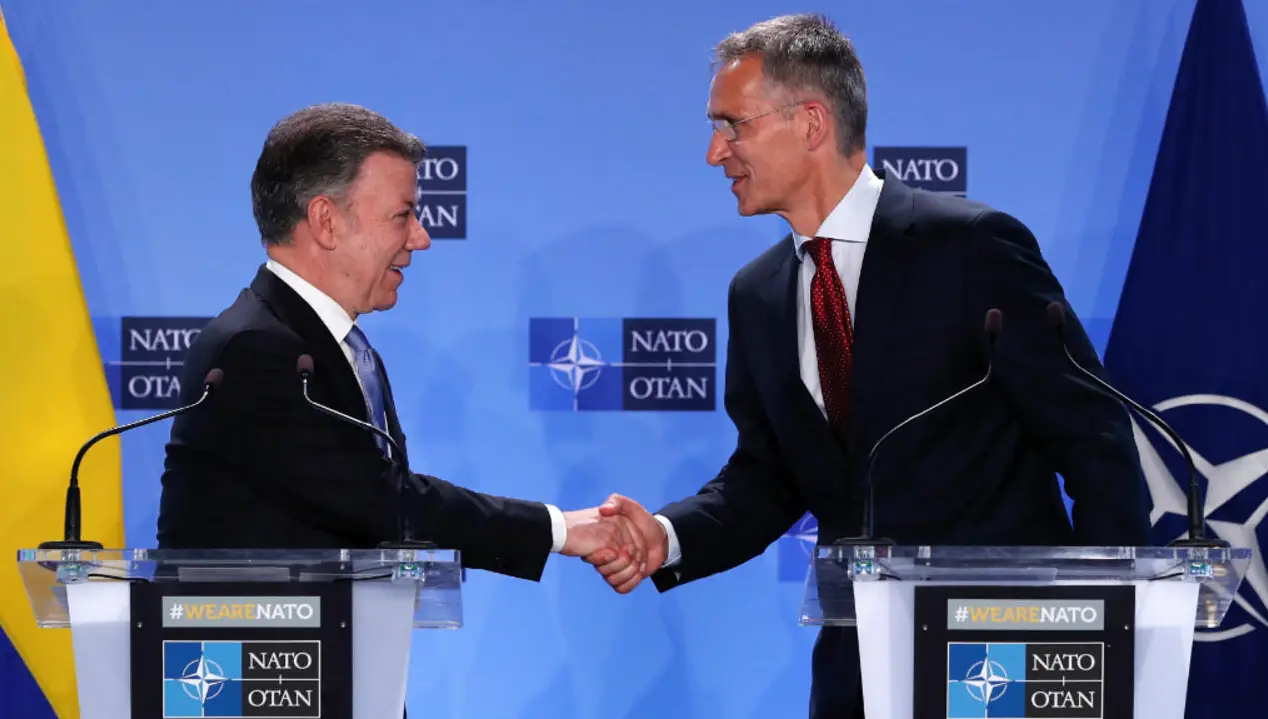On July 16, President Gustavo Petro announced that Colombia would abandon its status as a global partner of the North Atlantic Treaty Organization (NATO). The president justified this decision within the framework of his criticism of the role played by certain European governments in the conflict in Gaza and of the international supply of weapons to Israel. This initiative carries major implications for the modernization of Colombia’s defense and its integration into the global arena—especially amid the rapid evolution of artificial intelligence (AI) in the security field.
Colombia has had a relationship with NATO since 2017, when it joined as a global partner. Only seven countries—Australia, Japan, South Korea, Mongolia, New Zealand, Pakistan, and Colombia—hold this status. It does not entail military obligations but allows for invaluable cooperation in areas such as defense transparency, information sharing, modernization of the armed forces, participation in training activities, and access to projects on civil security based on scientific research, innovation, and knowledge exchange.
Security Sector Reform and, as a result, the transformation projects of Colombia’s armed forces began in 2012 as a process of adaptation to new material and political realities. Human security—a central theme of President Petro’s Development Plan—has been both a driving force and a guiding principle of these processes. It is not only a strategic, tactical, and operational transformation, but also the application of principles of good governance, transparency, and the rule of law. Organizations such as the United Nations and particularly NATO have enabled Colombia and its armed forces, as partners, to align part of their transformation with these principles. This has allowed Colombian armed forces to access training, modernization, logistics, and command systems aligned with international standards.
In this moment of geopolitical tension, NATO membership enables support and cooperation for strengthening cyberdefense capabilities and strategic security—crucial aspects for confronting Colombia’s own threats such as terrorism, organized crime, and drug trafficking. An exit at this time would not only result in the loss of international credibility and reduced cooperation with strategic allies, but more importantly, in the loss of invaluable defense and security capacities. For Colombia, NATO provides a key platform in areas such as technological interoperability, information access and exchange, cyber defense training, and cyberconflict doctrine.
NATO, the European Union, and their member states have called for mechanisms that ensure meaningful human control over autonomous systems and compliance with International Humanitarian Law (IHL). One example is NATO’s Science for Peace and Security (SPS) programme, which has supported key research initiatives such as Clicking the Pause: The Role of Transatlantic Cooperation in AI Supervision—an international research seminar on the ethical oversight of artificial intelligence (AI) in defense. Organized by the University of Salamanca and the University of La Sabana (Colombia), the event aimed to foster academic and political cooperation around the responsible use of AI in critical contexts such as security and defense. Colombia’s participation as a NATO global partner facilitates access to these advanced capabilities and knowledge in SSR and in the ethical integration of AI, which is vital for the successful continuation of its own military transformation—especially in the fight against irregular warfare threats.
Colombia has positioned itself as a pioneer in formulating AI strategies in Latin America, ranking among the highest in terms of AI policy and practice. It has launched a National AI Strategy and established a framework of principles and guidelines to foster AI development and build a governance system based on self-regulation rather than a rigid rule-based structure. If Colombia retains its global partner status with NATO, it can continue to serve as a vital bridge for Latin America’s involvement in global discussions on AI governance in defense and security.
Its leadership in developing a national AI strategy and its emphasis on self-regulation and ethics—combined with experience in multidimensional security and irregular warfare—offer a model and knowledge base that can benefit not only Colombia but other countries in the region. Exiting the alliance would undermine this process and erode Colombia’s credibility as a key player in global security and technology.
*Machine translated, proofread by Ricardo Aceves.













